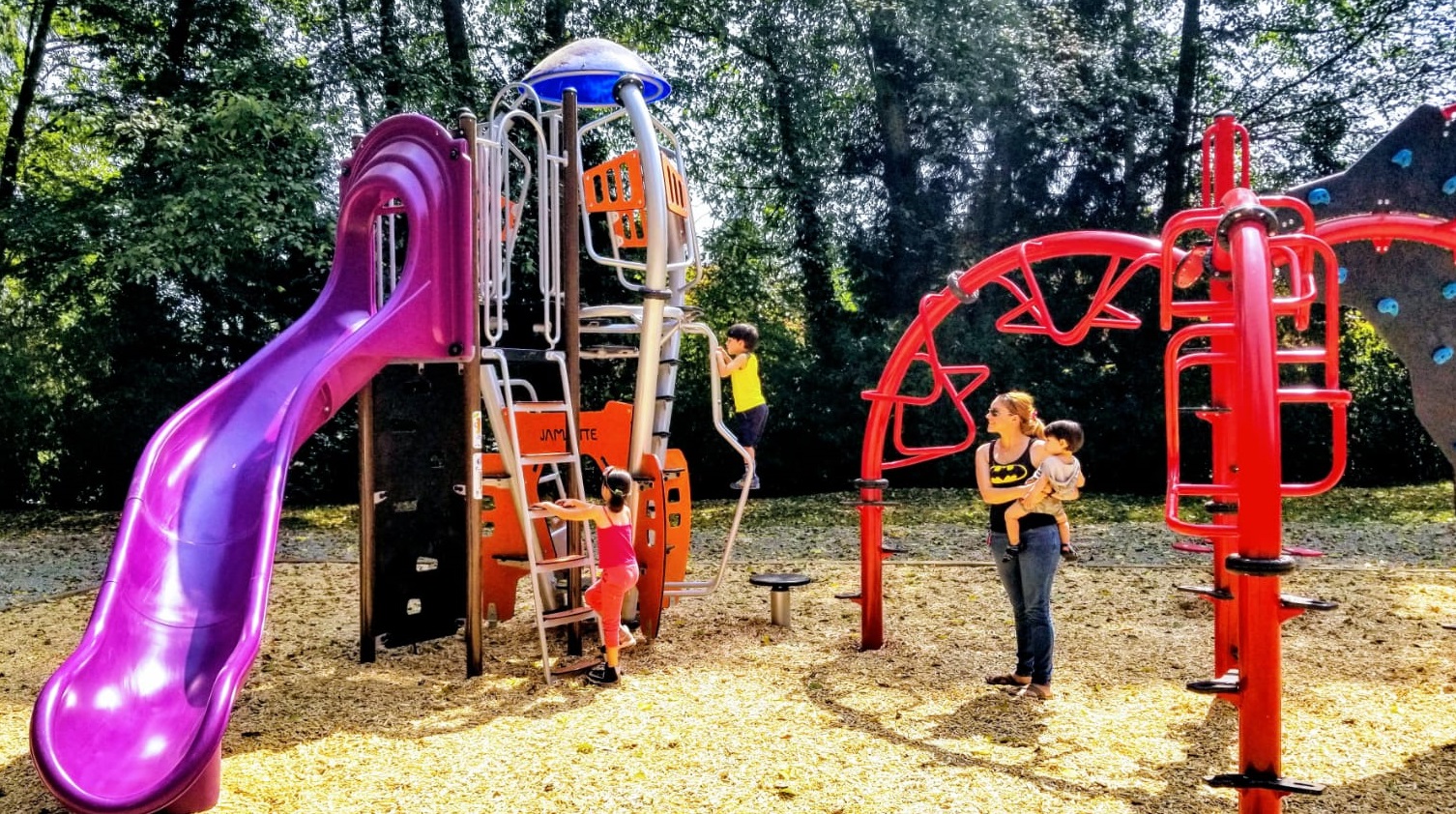Playgrounds allow children to play outdoors and interact with other peers in a safe and friendly environment, enabling them to develop different abilities and skills (be they social, mental, emotional, physical, etc.). In this article, we will talk specifically about the mental and creative benefits that playgrounds offer for children:
Capacity of attention
Online social media, electronic devices, and lack of exercise tend to reduce children’s attention span, which does not help them perform tasks that require attention or focus for extended periods. Playgrounds allow children to develop their attention span since the different activities in this environment require the child to concentrate on carrying out a specific recreational activity while interacting with his environment; this makes his attention span expand and stimulate. Another benefit is that children who are “hyperactive” or have difficulty being “still” can do long-term academic tasks more effectively after they have had an opportunity to play outside, exercise, and channel a good part of their energy.
Development of imagination
Playgrounds are spaces that allow children to develop their imagination since although there are different models of playgrounds, they can always be adapted to an imaginary game of a child; for example, a slide, in the child’s mind, can be represented as a river, a mountain hill, and a narrow path. Through play, the child imagines an environment based on the elements around it; in the case of a playground, this is designed to awaken a child’s imagination and adapt to the different imaginary and mental processes.
Critical thinking and problem-solving
Playgrounds encourage children to face situations in which creativity pushes them to improve their critical thinking and problem-solving skills. As children play in that environment, they learn what works and what doesn’t, how to face (or overcome) an obstacle, and the ability to keep trying to reach a specific goal.
Development of neural connections
When children play outside in a playground, they put their motor and neural skills to the test by doing activities such as climbing, swinging, sliding, digging in the dirt, etc. All these activities help children develop neural connections in their brains, contributing to the development of coordination, reflexes, and the ability to learn new skills.
Leadership
In most playgrounds, many children become natural leaders of their group; these “first steps” in leadership are carried out in activities as simple as explaining the rules of the game, forming teams, influencing other children to achieve a common goal, taking care of others, determine who is the winner, etc. the game allows to different children develop their leadership skills by exercising different roles: a member of a team, leader, collaborator, intermediary, etc.
What do you think about this topic? What other mental or creative benefits do you believe playgrounds offer?
If you want to know more about playgrounds, you can contact us or write your query in the bottom part (comments section).
Image from Jambette.com
